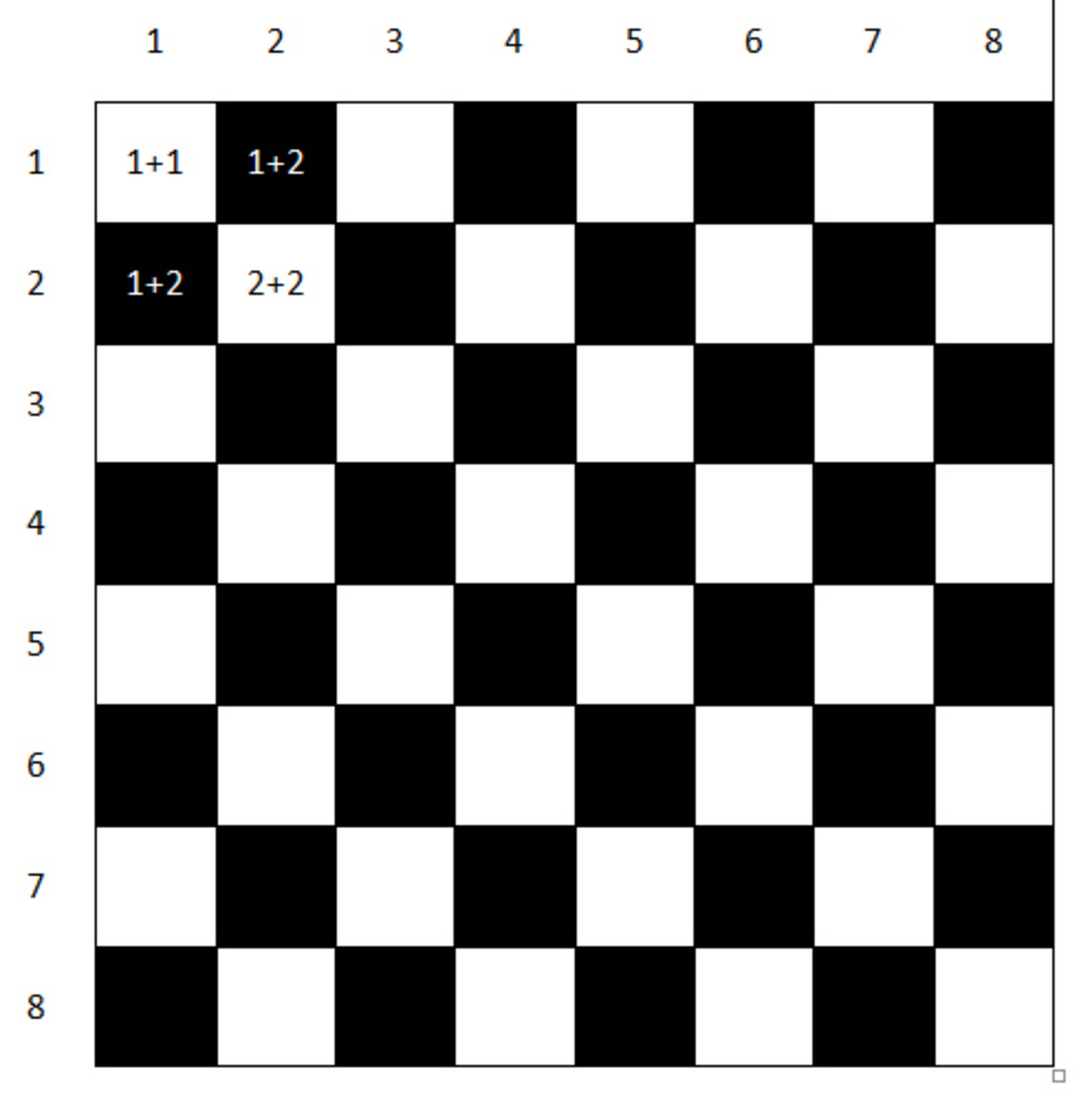Chess game
Probability
Level
2
During a chess game, Jack remarked that there are an even number of pieces in each row and in each column.
Is it possible that there are an odd number of pieces in the black squares?
No, it's not possible.
Yes, it's possible.
This section requires Javascript.
You are seeing this because something didn't load right. We suggest you, (a) try
refreshing the page, (b) enabling javascript if it is disabled on your browser and,
finally, (c)
loading the
non-javascript version of this page
. We're sorry about the hassle.
We numbered the chessboard's rows and columns as is shown on the figure below.
We write the number to each field of the chessboard, which is equal to the sum of its row's number and its column's number. For example to the left top corner we write 2 , because 1 + 1 = 2 .
Let S be the sum of the numbers of fields, which contain a chess piece. Since in each row and in each column there are exactly two pieces, S = 2 ∗ ( 1 + 2 + 3 + 4 + 5 + 6 + 7 + 8 ) + 2 ∗ ( 1 + 2 + 3 + 4 + 5 + 6 + 7 + 8 ) = 7 2 + 7 2 = 1 4 4 , which is even. (First we added the numbers from the rows, and then the numbers from the columns.) We can notice that in each white cell there is an even number and in each black cell there is an odd number. (It is true, because even + even = even = odd + odd , and even + odd = odd . So suppose there are n number of pieces on black squares, and k number of pieces on white cells. Then n would have to be odd. Then n number of o x -s o 1 + o 2 + ⋯ + o n + k number of e x -s e 1 + e 2 + ⋯ + e k = S
where o x is odd and e x is even, but then n number of o x -s o 1 + o 2 + ⋯ + o n is odd and k number of e x -s e 1 + e 2 + ⋯ + e k is even, but since S is even:
odd + even = even
which is not true.
So it is not possible.